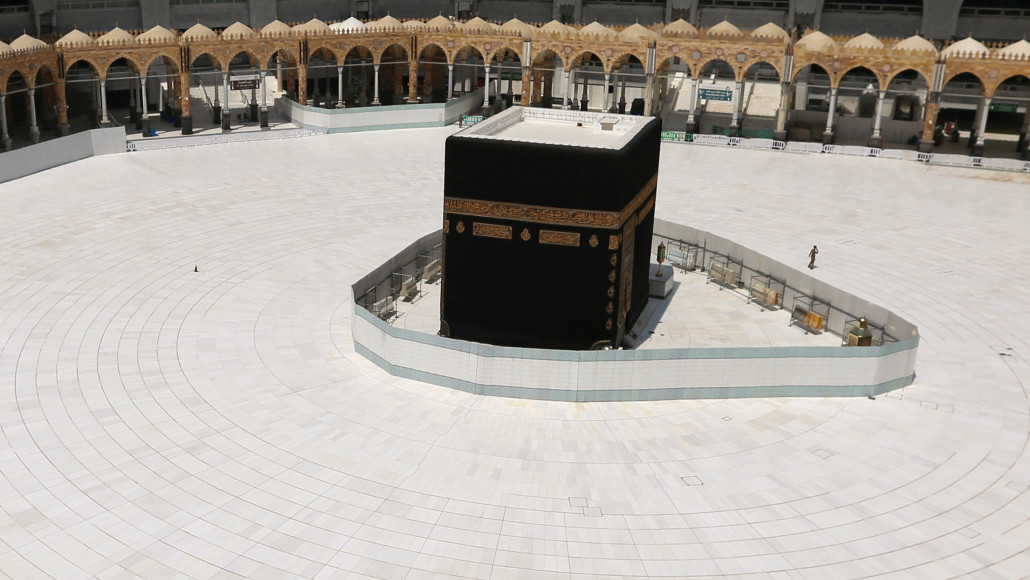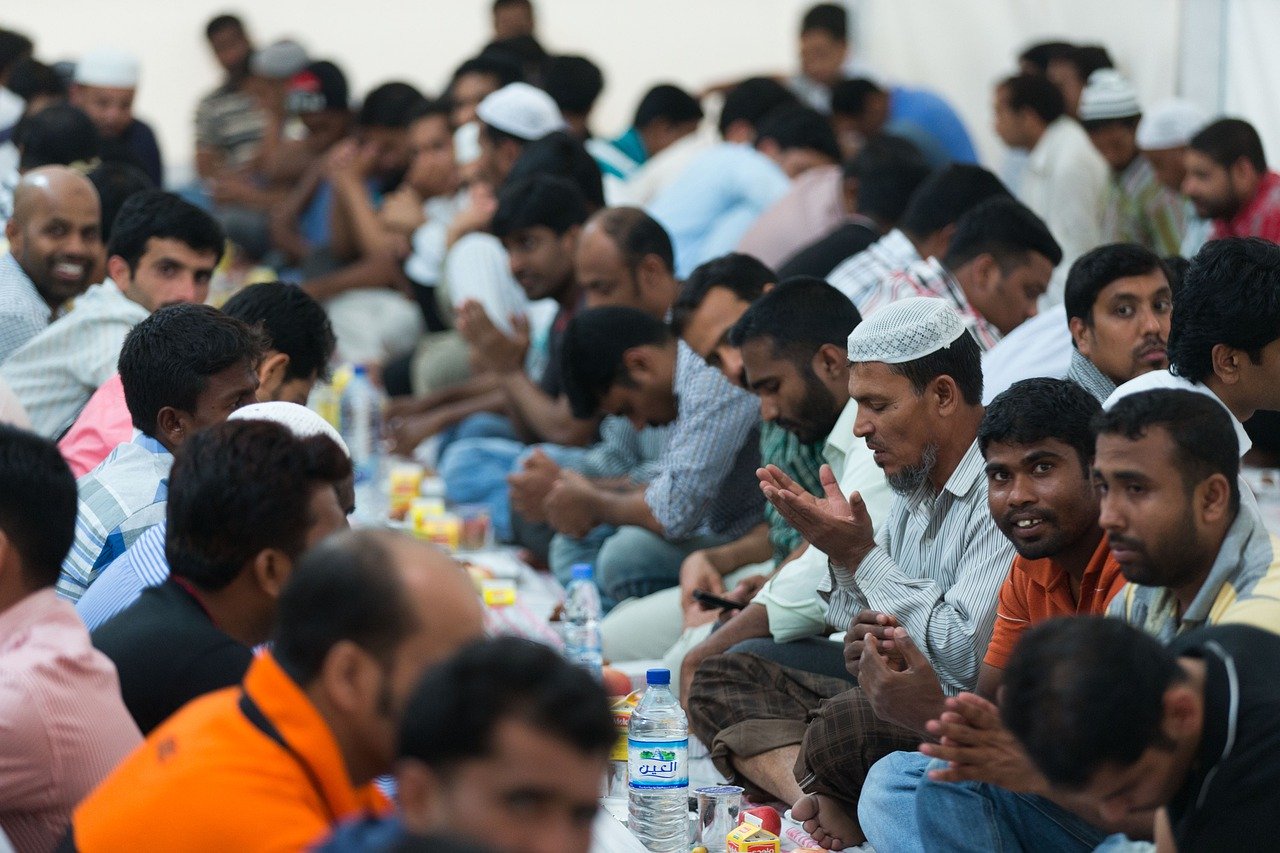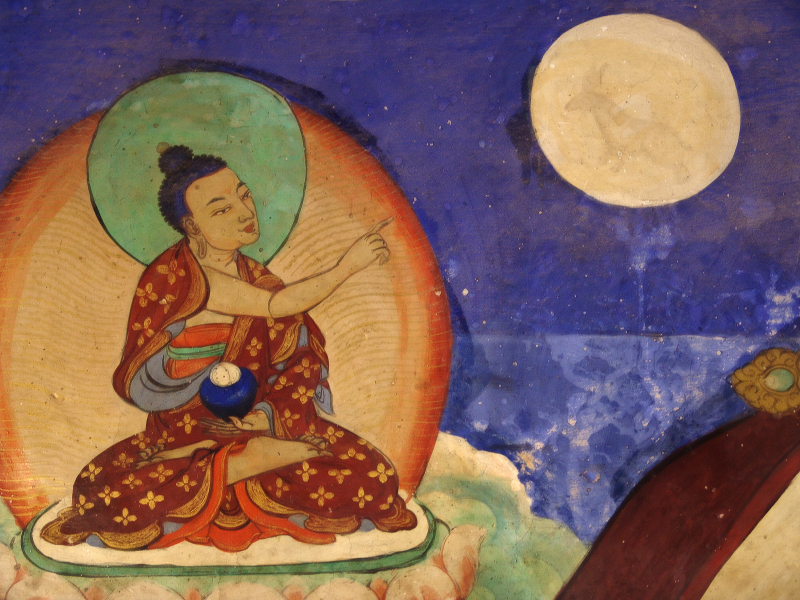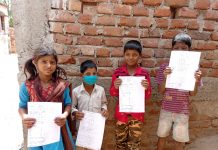The glimmering crescent moon and a sky filled with twilight signals the beginning of the holy month of Ramadan for nearly two million Muslims across the globe. This month of Ramadan is extremely holy and pious for the community and will unite Muslims from Boston to Baghdad in a collective act of forgoing food and water from dawn to dusk. This is time when worshippers across the world devote more time to prayers and charity accompanied by selfless acts of kindness. This is also the time of the year when the family comes together to break the fast at tables embellished with delicacies. But the outbreak of the coronavirus pandemic will surely bring about a very different Ramadan this year.
The holy month of Ramadan began all over the world on Friday and some parts of the world will see the beginning of Ramadan on Saturday, but Islam’s holiest sites in Saudi Arabia and Jerusalem remained largely empty even as the holy month began. The coronavirus crisis and the resultant fear of infection among people has meant that this year, gatherings and celebrations will be confined indoors as worshippers face unprecedented restrictions on their movement. Muslims have prepared themselves for an isolated and solitary Ramadan, as people are confined indoors and mosques are shut. The sense of community that marks this month, is totally missing as the world grapples with the challenges unleashed by the outbreak of coronavirus.
The month of Ramadan has extreme spiritual importance for the Muslims across the world and it is in this holy month that the mood of austerity accompanied with festivity fills up their lives. During the Ramadan, Muslims across the world make it a priority to unite with their families and to collectively break the fast at sunset and attend the prayer at the mosque.
But this year, people’s priorities and ways of commemorating the month are certain to see drastic change. Their priorities and concerns have clearly become more focused on the health and safety of themselves and their family members and thus people are choosing to refrain from large gatherings for either prayers or even Iftars, or collective meals that mark the breaking of the day’s fast.

The coronavirus pandemic has borough about a unique moment in the history of Islam, it is for the first time in the religion’s 1,400 long history that Mecca’s Grand Mosque and the Prophet’s Mosque in Medina( two of Islam’s holy sites)will remain closed for the public during the fasting period. The prayers that were conducted from inside the premises of the mosque at Medina marking the first evening of Ramadan on Thursday had to be limited to the clerics and staff. This was broadcasted live on television. In response to the ongoing need for social distancing despite the holy month, King Salman who is the custodian of the two holy mosques also lamented and expressed his unhappiness.
According to a statement issued in the official Saudi Press Agency he said, “ It pains me to welcome the glorious month of Ramadan under circumstances that forbid us from prayers at mosques.”
The mosque at Jerusalem named Al-Aqsa also remained largely empty at the time of the Friday prayers setting of the holy month of Ramadan, as the Imam called out to worshippers in different parts of the country. Just a handful of clerics adorning face-masks knelt down below the pulpit, maintaining a distance between themselves and abiding by the coronavirus protocol for social disarming.
The Imam of Jerusalem went ahead and said, “ We ask God to have the mercy on us all and all of humanity and save us from this lethal pandemic.”
The month of Ramadan is known to be a time when thousands of worshippers flock the mosques daily and also pay a visit to the adjoining Dome of the Rock but this year, worshippers have no option left but to watch the holy prayers on their television screens.
The Ramadan in Asian Countries Amid the Fear of Coronavirus
The governments in the Asian countries also urged the Muslims to refrain from venturing outdoors for prayers and instead appealed to them to stay at home and follow social distancing while observing the Ramadan. Asia is home to a large portion of the world’s 1.8 billion Muslims and the outbreak of the disease in many parts of the continent has led to governments of many countries like India, Malaysia, Afghanistan and Pakistan issuing strict restrictions on public gatherings. The Malaysian government has urged everyone to stay at home and refrain from coming to the mosques to offer their prayers and the lockdown and curbs to contain and control the spread of the coronavirus pandemic have been extended till May 2. All shops, travel and commercial activities have been suspended and people have been urged to offer their prayers within the premises of their homes. In Indonesia which houses the world’s largest Muslim population and has recorded Asia’s highest coronavirus toll after China, the president has asked people to stay at home and pray.
The Ramadan in South Asia: What Has Changed?
The month of Ramadan will be set off on Saturday in South Asia. India is home to 160 million Muslims and as the country is undergoing a countrywide lockdown, the government has requested the worshippers to offer their prayers from home. The All India Islamic Centre that offers religious teachings will be live-streaming recitations from the Quran every evening during the month of Ramadan. This is surely an innovative and constructive way to create a sense of the collective even while social distancing and lockdown restrictions are compelling people to refrain from real gatherings during the Ramadan.
However, the Pakistani government has decided to relax restrictions on people visiting mosques to offer their prayers and this has many doctors in the country extremely worried. Bangladesh has gone ahead and put severe restrictions on mosque gathering for evening prayers to 12 people and even banned Iftar gatherings. Sri Lanka has closed the doors of mosques completely.
![Jama Masjid, Delhi [File Photo]](https://thenewleam.com/wp-content/uploads/2020/04/Jama-Masjid.jpg)
The Algerian government had taken a step to accommodate Ramadan worship by shortening the night curfew and by lifting the lockdown so that people can come and offer their prayers at mosques commemorating the holy month of Ramadan.
The Nigerian government experienced a massive protest by people who wanted the mosques to be opened for prayers despite a countrywide curfew in order to control the spread of the coronavirus pandemic.

Wasim Mirza is a contributing writer to The New Leam. Mirza is also a Culture Historian – based in Hyderabad, India.














